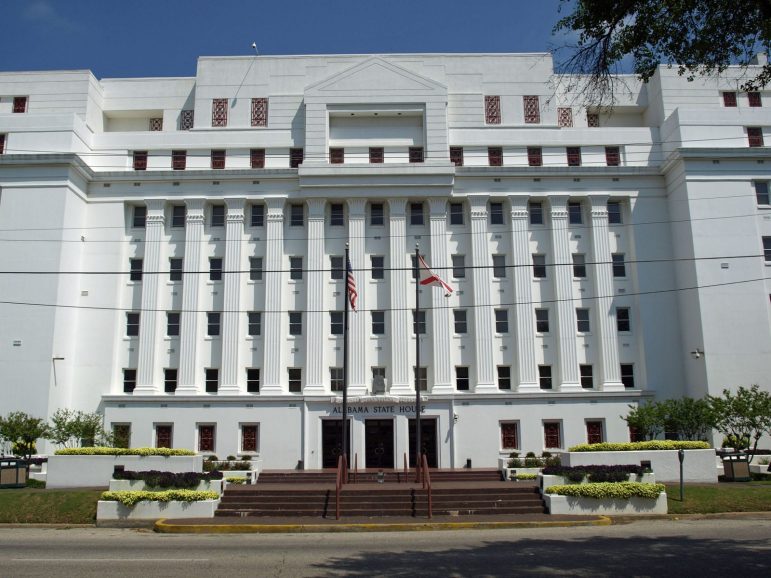Dick Brewbaker thought he knew what he was getting into four years ago when he ran for a seat in the Alabama House of Representatives. Afterall, he worked for his family’s auto dealership – so he knew how to negotiate – and he was a former high school history and government teacher. But when Brewbaker won the election and started work in Montgomery – the real education began.
“Well, I have learned – it’s nothing like they teach in civics classes.”
Brewbaker says he quickly found out that lawmaking in Montgomery is really done by just a handful of legislators – and a whole lot of lobbyists. He points to a piece of eminent domain legislation considered in the most recent session. He says it was written largely by special interest groups and lobbyists.
“And we were told in committee that we had better not amend that bill because no other form would be acceptable – not to the senators, but to the lobbyists who’d written the bill.”
Brewbaker did offer an amendment, which the House approved, but on the final day of the session, the senate rejected the changes and asked for a conference. Brewbaker says it was politics as usual…
“A lot of this – there’s just no conceivable way it’s in the public interest and the disclosure laws are so poor and our enforcement mechanisms so weak here in Alabama that there’s almost no way for the public to even determine which lobbying interests are trying to influence their legislators.”
(Sumner)”We probably have the most liberal provision in the country in terms of being able to provide hospitality for public officials and employees and not having to report it.”
Jim Sumner is the director of the Alabama Ethics Commission – the state office responsible for policing lobbyists, lawmakers and other state officials. Every state has its own policies, but in Alabama lobbyists can spend whatever they want on lawmakers… and expenses under $250 a day don’t have to be reported. Sumner says when you consider that legislator’s per diem is just 50-dollars a day – not even enough for good hotel room – it’s no surprise lobbyists are picking up many a tab in Montgomery.
“There are a number of organizations who have instructed their lobbyists not to do anything that’s going to trigger a reporting requirement. they keep the hotel costs under that – the meal costs under that – and any other extracurricular activities like golfing, fishing, whatever, well under that 249 limitation.”
Eason Balch Junior has been a lobbyist for more than 30 years… working on behalf of Alabama Power – the state’s largest utility. He says his company has a rule that lobbyists cannot spend more than 250 a day because the company doesn’t want to have to report those expenses. Still, he says, the thought that lobbyists are buying votes from lawmakers is ridiculous.
“Nobody that I’ve encountered is going to sell a vote for a $30 dinner or a $50 dinner. My experience is they don’t have a bit a problem – to have dinner with you on Wednesday night and vote against you on Thursday morning.”
Political scientist Randolph Horn of Samford University says most of the influence peddling – in Montgomery and statehouses across the country – isn’t nearly as scandalous as the Abramoff affair and other recent cases that have dominated media coverage…
“Those are egregious cases that tend to make us think in terms of out and out bribery, which is relatively rare, and not recognize the more subtle influence that lobbyists have on legislators nationwide.”
In Alabama and several other states, lawmakers don’t have staff researchers who can examine legislation, provide independent advice, and work as a buffer between legislators and special interests. Instead, lawmakers like State Representative Dick Brewbaker often rely on lobbyists for research.
“You know I’m in the automobile business and before that I was a school teacher and when I’m asked to vote on issues dealing with Medicaid – you know, sometime it’s hard to feel like you really have a handle on the information because the people offering you information have a dog in the fight.”
But lobbyist Eason Balch doubts a professional legislative research staff would make much difference.
“I believe they would end up quite often with the professional researchers and so forth taking a position one way or another, probably based on their own agendas and their own prejudices and so forth.”
Roberta Baskin backs him up on that. She’s the executive director of the Washington-DC based Center for Public Integrity … a non-profit research group that’s investigated lobbying efforts in congress and state houses. She says…
“It’s the lobbyists and the staff that are in the back rooms writing the legislation that the legislators are voting on, but they don’t even necessarily read. Some of these bills are a thousand pages long. And so the staff that has been wined and dined and taken on junkets – you know, they will be advising the member to vote on way or another.”
It all boils down to transparency, say critics – state governments like Alabama’s need to make it easier for citizens to find out what special interests are funding which lawmakers. Reformers aren’t holding their breath.

